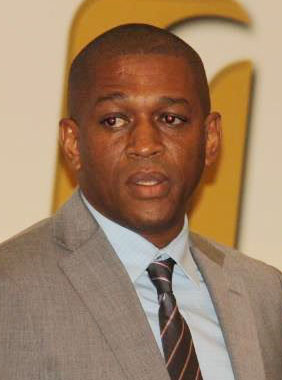Working through the twin distractions of an as yet undetermined outcome to the country’s March 2 general elections and shortly on the heels of the poll the onset of the coronavirus, Guyana’s Department of Energy appears focused on remaining on even keel with reports earlier this week disclosing that the entity is moving to engage the services of a suite of high-level specialists in various disciplines, part of a process of equipping itself with the skills necessary to ensure that the country’s new found oil and gas resources are effectively managed.
Guyana’s ‘rush’ to transitioning from an essentially agricultural economy to a fully-fledged oil-producing country, potentially poised for a dramatic economic takeoff, has amounted to a proverbial blur, the period between the first significant oil discovery announcement by ExxonMobil and the first ‘lift’ of ‘black Gold from the Liza Phase inside the Stabroek Block having occurred in less than five years. With the country now having become a substantive oil producer/exporter, the Department of Energy, which functions under the Office of the Presidency has quickly metamorphosed into one of the country’s most important state agencies.
Reports earlier this week quote the Department’s Director, Dr. Mark Bynoe as saying that the move by the DOE to further shore up its technical capacity should be seen against the backdrop of continued efforts to “work assiduously” to create an infrastructure to ensure that its capability to manage an oil and gas sector is enhanced.
In one of his very recent comments to the media the DOE Director is quoted as saying that the entity “has contracted the services of a Petroleum Accounting Specialist and has been working to secure the services of a Contract Administration Specialist, a Sub-surface Engineer and an Oil and Gas Advisor to the Director of the DOE”.
Given the pace at which the exploitation of Guyana’s oil resources has moved, it was always likely that ‘first oil’ would arrive well ahead of the establishment of an administrative infrastructure fully equipped to manage the sector. The DOE would now appear to be moving at an accelerated rate to build capacity.
With Guyana now seemingly moving closer to the ‘big league’ with oil output estimated at around 1 million barrels per day by the end of the decade, the country has, particularly over the past two years, attracted the focused attention of both regional and international businesses in an array of sectors, with some already moving in the direction of making long-term investment commitments, banking on the short term emergence of a fully-fledged oil and gas economy in Guyana.
Beyond the international attention which the country has attracted, its now huge short-term economic growth potential has not only focused the attention of the local private sector on the local content dimension to oil and gas investments that can completely transform its own fortunes, but has also given rise to what have been, in some instances, exalted expectations of life-changing developments deriving from the country’s anticipated oil earnings.
With ExxonMobil continuing to pursue its oil recovery operations offshore Guyana, the overwhelming majority of Guyanese have never set eyes on the company’s actual operating infrastructure. The reality is, however, that, in the immediate term at least, the ongoing political controversy arising out of the disputed outcome of the March 2 general elections and the widespread sense of public concern over the onset of the Coronavirus have combined to cool, somewhat, the ardour of a nation that had become enveloped in thick mist of hype and hoopla in the wake of the 2015 oil find.
Understandably, the country now has two immediate concerns, those being, seeing off the menace of COVID-19, something which has now assumed the status of an imponderable and secondly, putting behind it the political drama that has attended the search for an end to the post-March 2020 general elections controversy.
In the immediate term neither the COVID-19 menace nor the political events in Guyana would appear to have unduly impacted ExxonMobil’s commitment to its ongoing oil- recovery pursuits offshore Guyana. The company’s already stated assurance at the level of its Chief Executive Officer that its Guyana project remains a high priority has been manifested in the fact that its operations are proceeding, presumably with the requisite precautions in place, despite the continued threat posed by COVID-19. Moreover, weeks ago, the Norway-based energy research and business intelligence company Rystad Energy said that it did not anticipate that even the current instability in the global oil market will result in a cessation of ExxonMobil’s oil recovery pursuits offshore Guyana.
Onshore, however, the Department of Energy’s recruitment pursuits could face challenges arising out of the fact that, in this instance and almost certainly in later ones, it will have to look outside of Guyana for almost all of the specialist skills which it requires as it seeks to build a highly competent oil and gas administration infrastructure. Government has already gone on record as saying that its objective of creating a Department that focuses on high performance standards means that it will have to take its search for quality personnel outside of Guyana, a procedure, which while clearly necessary in the circumstances, could be protracted.





